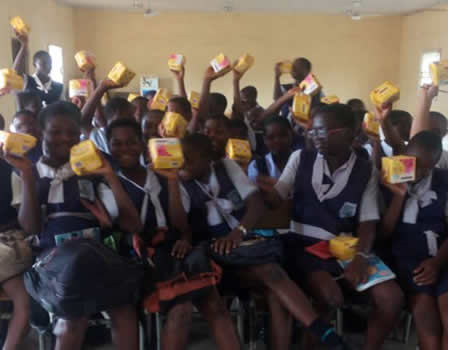Mercy Corps, an NGO, says it is partnering Procter and Gamble to provide menstrual hygiene management education for girl- children in the Federal Capital Territory (FCT).
Ms Wemimo Onikan, the Communication Officer, Educating Nigerian Girls in New Enterprises (ENGINE) II, said this in a statement made available to the News Agency of Nigeria (NAN) on Thursday in Abuja.
She said this is coming as the world commemorates Menstrual Hygiene Day.
She stated that globally, 2.3 billion people lacked basic sanitation services, adding that in developing countries, the situation is more challenging.
She noted that Nigeria as a developing country was struggling to provide adequate sanitation services that would benefit girls in all schools, but nothing had significantly contributed to girls missing out of school.
Onikan who said that education was a right, stated that girls had the right to attend school and engage in their education without interference, irrespective of their menstruation.
According to her, the inability of in-school girls to manage menstruation properly often results in discomforts, poor self-esteem and absenteeism from school.
She stated that this often made it difficult for them to maximally participate in academics and complete a cycle of learning.
“Menstruation is a normal biological process and should not negatively affect the social wellbeing of girls.
“In the FCT, Procter and Gamble’s Always Keeping Girls In School (AKGIS) project, implemented by Mercy Corps Nigeria as a complementary intervention to the DFID funded Educating Nigerian Girls In New Enterprises (ENGINE) II programme.
“This is reaching over 2,000 girls and secondary school teachers in the territory,’’ the spokesperson said.
She stated that the project provided training to adolescent girls, boys and teachers on Menstrual Health Management (MHM) in schools, provision of psychosocial support, counselling services and life skills.
According to her, over 73,440 sanitary pads have been provided as emergency sanitary pads for adolescent girls in 29 secondary schools in the FCT.
“With teachers and principals trained to build MHM into their various school systems, increasing awareness on the proper management of menstruation in schools,’’ she added.
She said that it also addressed myths and creating a conducive environment for girls to stay in school during their periods.






